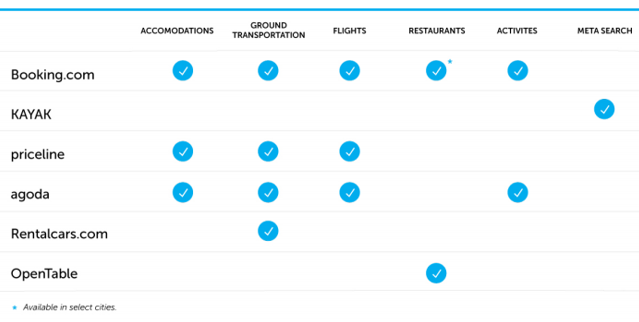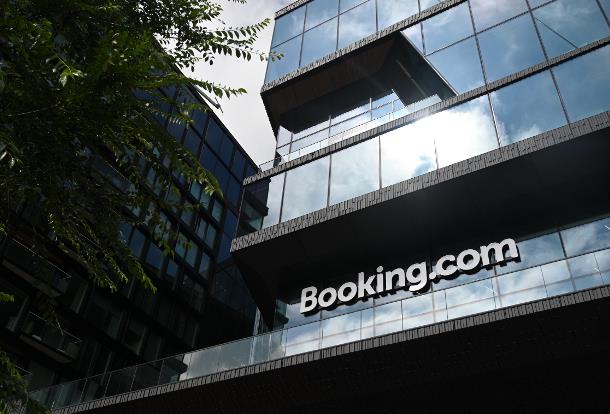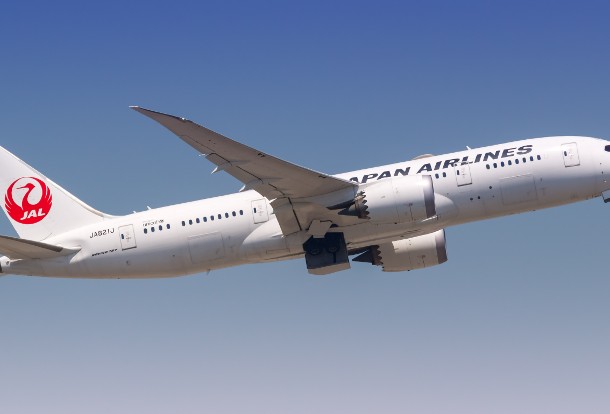ChinaTravelNews, Jerry Tang - Since acquired by Booking Holdings more than 10 years ago, Agoda, one of Asia’s best online travel platforms, has been pursuing a stronger position in Asia Pacific and China.
Agoda already has strong brand awareness in Asia Pacific markets like Singapore and Thailand, but the company’s presence in China, the world’s biggest outbound tourism source market, remains relatively small. That may change following restructuring within the group.
Integration and internal competition
Glenn Fogel, CEO of both Booking.com and its parent Booking Holdings, has been touting a “Connected Trip” initiative in recent years, eyeing to integrate the online travel group’s six major brands into a connected and frictionless travel platform for consumers.
For Agoda’s part, it aspires to help everyone to travel anywhere in the most frictionless way possible, its CEO John Brown told ChinaTravelNews.

Agoda CEO John Brown
“Agoda continues to leverage superior technology to build a seamless multi-product offering and payments network to ensure consumers enjoy a frictionless, fuss-free experience when they book their travel,” he said.
Agoda wants to help people enjoy a seamless travel experience at every aspect of their journey with one-stop offerings on its platform, whether it’s traveling from the airport or renting a car to get around or booking things to do at the destination.
However, before the services across the group’s different platforms are fully connected and consolidated, Agoda will face internal competition with Booking Holdings’ subsidiary brands. To start with, its sister brand Booking.com, the No. 1 OTA brand under parent Booking Holdings, has been making significant investments in the Chinese market and expanding in Asia.
Both Booking.com and Agoda are going after the Chinese consumers, offering a similar range of products including accommodations, ground transportation, flights and activities services.

Meituan and Didi are “strongest partners”
As well, Agoda and Booking.com are separately working with rivaling Chinese ventures.
Booking Holdings invested more than USD 500 million in Chinese online travel giant Trip.com Group a few years ago, though it offloaded some of the strategic shareholding last year to boost its cash reserve in face of the unpredictable COVID-19 pandemic.
The US-based travel group has also made strategic investments in Meituan, a lifestyle services platform and domestic hotel-booking competitor to Trip.com Group, as well as in Chinese car-hailing powerhouse Didi Chuxing.
While Trip.com Group stays close with Booking.com as a distribution partner, Agoda works with Meituan and Fliggy.
In July 2016, Agoda signed a commercial agreement with Meituan, which allowed the Singapore-headquartered OTA to sell accommodations to users of Meituan’s app and helped the company reach the middle to lower-income Chinese travelers.
A robust and diverse travel industry is always full of both partnerships and competition, as Agoda’s Chinese partner also had its own vision to go global in the hotel booking business.
In February 2017, Meituan announced that it had rolled out overseas accommodation service on its two major apps, offering over 120,000 overseas properties for bookings, of which 25% were high-rated hotels.
Still, the deals with local platforms like Meituan and Fliggy will continue to facilitate Agoda’s growth in the Chinese consumer market.
Recognizing the importance of such partnerships, Booking Holdings CFO David Goulden said at an investor conference in December 2020 that the group’s “strongest partners” were Meituan and Didi, both shared the ambition to become a lifestyle super app beyond the narrowly defined travel business.
“Meituan and Didi are both very powerful and well-known companies with huge customer bases, and the partnerships are a way to expose our offerings.” Mr. Goulden added that a combination of organic growth and local partnerships will help the group seize the next outbound opportunity when the pandemic is over.
This combination strategy will benefit both the Agoda and Booking.com brands in the China market.
“Agoda will be the lead brand for partnerships”
Last year, Agoda consolidated the group’s strategic corporate partnerships in China, adding to its consumer-facing operation in the market, while Booking.com retains its own consumer-facing unit in China, ChinaTravelNews learned.
The change appears to be part of Booking Holdings’ strategic restructuring plan following the significant pandemic impact on the global travel giant. Booking.com also announced in August 2020 that it would trim up to 25% of its workforce.
As the world’s top online travel group, Booking Holdings saw a sharp decline in its business last year. The company’s total revenue (largely generated by its biggest brand Booking.com) dropped by 52.6% to USD 5,558 million for the first nine months of 2020, according to Booking Holdings’ third-quarter earnings report.
Agoda has now become Booking Holdings’ lead brand for APAC strategic partnerships, Adrian Lopez, Country Director (China) of Agoda, told ChinaTravelNews.

Adrian Lopez, Country Director (China) of Agoda
“While we continue to focus on the long-term recovery process from the ongoing impact of the pandemic on our business, we continue to look at operational efficiencies across Booking Holdings as a part of ongoing business operations,” he said.
“We’ve made changes to how our strategic partnerships team operates within the different regions, including APAC, where Agoda will be the lead brand for partnerships.”
Capitalizing on the China and APAC markets to weather pandemic impacts
For now, Agoda will concentrate on domestic travel services in China, according to Mr. Lopez.
“In today’s environment, we are focusing on serving Chinese domestic accommodation needs. As international travel rebounds, as one of the major foreign digital travel platforms in China, we are well placed to also help Chinese travelers easily find and book accommodation that best suit their preferences and budget anywhere overseas,” Mr. Lopez commented.
In the past year, Agoda has responded rapidly to the impacts of the prolonged COVID-19 pandemic.
The hotel and travel reservation service has “pivoted well to address the impact, shifting from predominantly international travel to almost exclusively domestic”, according to Mr. Brown.
He said COVID-19 has forced the company to make tough choices quickly. In May 2020, Agoda announced that it would lay off 1,500 workers, around 25% of the company’s total workforce. “We had made robust cuts last year to ensure we had the right roles to help us navigate the changes we faced.”
The numbers began to improve in the third quarter last year. Booking Holdings registered a 47% year-on-year drop in gross travel booking for the third quarter, but that was much better than the 91% drop in the second quarter.
The hiring freeze for Agoda is over. The company will now be expanding key teams including data, engineering, customer experience group specialists and market managers.
“We’ve seen signs of recovery in our core markets in Asia Pacific,” Mr. Brown told ChinaTravelNews, “but returning to 2019 levels will be dependent on the resumption of international travel without significant restrictions.”
While international travel remains in a standstill, domestic travel is recovering fast particularly in Asia Pacific. With more people getting inoculated with COVID-19 vaccines, some Asian countries are considering reopening further.
Thailand, where Agoda has its biggest operation, is mulling over a full reopening scheme to allow vaccinated travelers to move around freely with no quarantine. This may present new business opportunities for the company.
Mr. Brown said it would probably take years for travel to fully return to pre-pandemic levels, but he remains bullish about the long term.
“By late this year, maybe longer, we will see international travel resume and I expect we will see a travel boom,” he said. “Ultimately when we emerge from this, the way we travel might be different. But we believe that people’s desire to travel and experience the world remains.”




